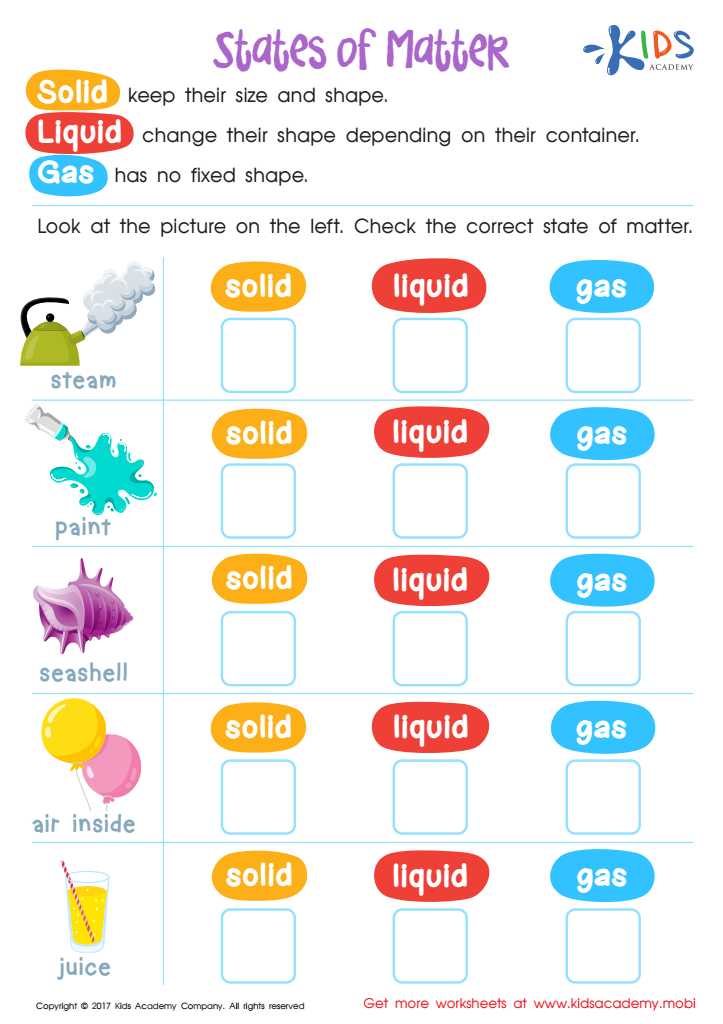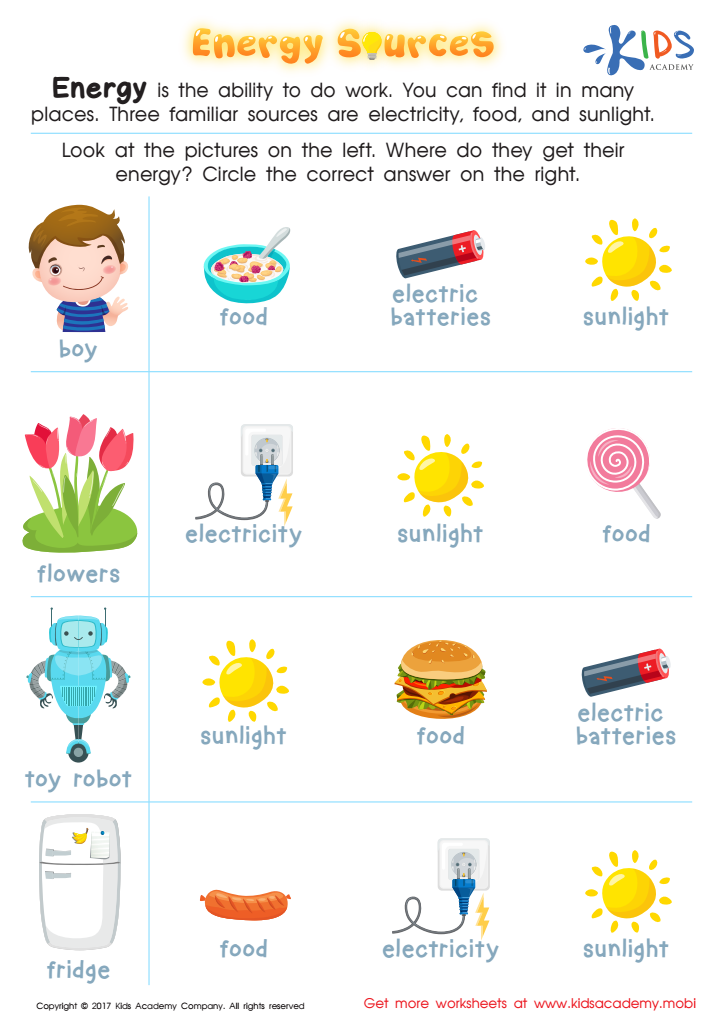Physical Science Worksheets for Ages 5-8
3 filtered results
-
From - To
Discover engaging and educational physical science worksheets designed for children aged 5-8! Our resources focus on key concepts in the world around us, making learning both fun and accessible. Through interactive activities, kids will explore topics such as matter, energy, and changes in the environment. Each worksheet encourages critical thinking and hands-on learning, promoting not only scientific understanding but also creativity. Perfect for classrooms or at-home practice, these worksheets are designed to spark curiosity and inspire young minds. Download our printable worksheets today and watch your child embark on an exciting adventure through the wonders of physical science!


Physical Science: States of Matter Worksheet


Sink or Float Printable


Energy Sources Printable
Parents and teachers should care about Physical Science for children aged 5-8 because it lays the foundation for critical thinking and a deeper understanding of the world around them. At this young age, children are naturally curious, often asking "why" and "how" questions. Introducing them to basic concepts of physical science, such as gravity, forces, matter, and energy, helps nurture this curiosity.
Learning about physical science encourages exploration and experimentation, skills that are essential for developing problem-solving abilities. Engaging with scientific concepts fosters a sense of wonder, prompting children to observe, inquire, and seek evidence in their surroundings. This not only supports cognitive development but also promotes creativity, as children learn to think outside the box to explain phenomena.
Moreover, physical science can be integrated creatively with hands-on activities, making learning enjoyable and interactive. This combination helps to cultivate a lifelong love for learning while enhancing literacy and numeracy skills in a meaningful context. Additionally, early exposure to physical science can inspire future interests in STEM (science, technology, engineering, and mathematics) fields, which are crucial for innovation in our rapidly evolving world. Ultimately, encouraging a solid grounding in physical science can empower young children to become informed, inquisitive adults.
 Assign to My Students
Assign to My Students















